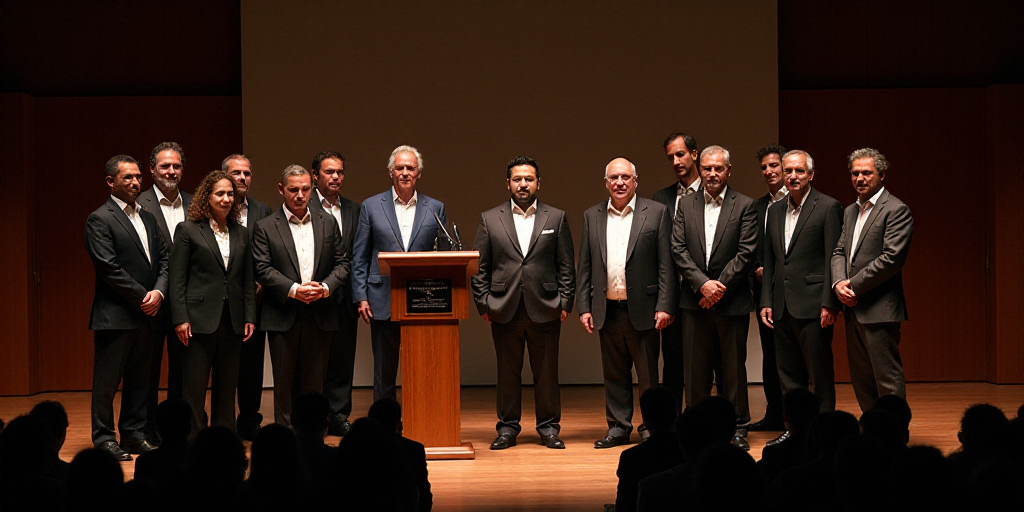Background on Marcelo Ebrard and Quintana Roo
Marcelo Ebrard, the Secretary of Economy in Mexico, recently expressed his vision for Quintana Roo to become a manufacturing powerhouse within five years. Quintana Roo, known for its stunning Caribbean coastline and popular tourist destinations like Cancun and Cozumel, is now set to transform its economy through industrial development.
Mara Lezama, the Governor of Quintana Roo, joined Ebrard to sign a formal agreement initiating the construction of the Polo de Desarrollo para el Bienestar Chetumal I, a key industrial park project.
Polos del Bienestar: The Industrial Parks Initiative
The Polos del Bienestar are industrial parks designed to leverage regional strengths and vocations, offering tax incentives and other benefits to attract investors. These parks are a crucial component of President Andrés Manuel López Obrador’s Plan México, aimed at fostering economic and social development across the country.
So far, 15 Polos del Bienestar have been planned across 14 Mexican states. Recently, the Parque Industrial Bajío in Zinapécuaro, Michoacán, began construction following a formal agreement.
Chetumal I: The Second Officially Launched Polo
Chetumal I is the second Polo del Bienestar to be officially launched. Located in Othón P. Blanco, Quintana Roo, it is strategically positioned near the Chetumal International Airport, Tren Maya station, and a maritime port. Once operational, it will help balance regional development in Quintana Roo.
Tax incentives for Chetumal I include 100% deduction on fixed assets, plus additional 25% for training and dual education expenses, and another 25% for innovation and technological development. State and municipal taxes are still under discussion.
Focus Sectors and Objectives
Chetumal I will concentrate on productive sectors aligned with strategic industries such as electric energy, textiles, metalworking, machinery and equipment, agroindustry, information technology, e-commerce, international trade, and logistics. The main goal is to keep more wealth within Quintana Roo through local production and well-paying job creation.
Governor Lezama expressed her belief that this development pole will change Quintana Roo’s trajectory, transforming lives and families by providing local youth with opportunities to thrive without emigration.
Supporting Partners and Recognition
During the visit, Ebrard was accompanied by Subsecretary of Industry and Commerce Vidal Llerenas, Head of Prospective Planning and Evaluation at the Secretariat of Economy Carlos Candelaria, and Othón P. Blanco Mayor Yensunni Martínez.
Prior to the agreement signing, Ebrard presented “Made in Mexico” certificates to 13 local businesses, acknowledging their commitment to quality, national production, and regional economic growth. This recognition underscores the Mexican government’s support for local industries and its dedication to fostering conditions that encourage employment, innovation, and consumption of domestic products.
Key Questions and Answers
- What are the Polos del Bienestar? Industrial parks designed to leverage regional strengths and offer tax incentives to attract investors, promoting economic development.
- What is the goal of Chetumal I? To transform Quintana Roo into a manufacturing powerhouse by focusing on strategic sectors and keeping more wealth within the state through local production and job creation.
- What tax incentives does Chetumal I offer? 100% deduction on fixed assets, additional 25% for training and dual education expenses, and another 25% for innovation and technological development. State and municipal taxes are still under discussion.
- Who attended the signing ceremony? Secretary of Economy Marcelo Ebrard, Quintana Roo Governor Mara Lezama, Subsecretary of Industry and Commerce Vidal Llerenas, Head of Prospective Planning and Evaluation Carlos Candelaria, and Othón P. Blanco Mayor Yensunni Martínez.
- What recognition was given to local businesses? “Made in Mexico” certificates were presented to 13 local companies for their commitment to quality, national production, and regional economic growth.






